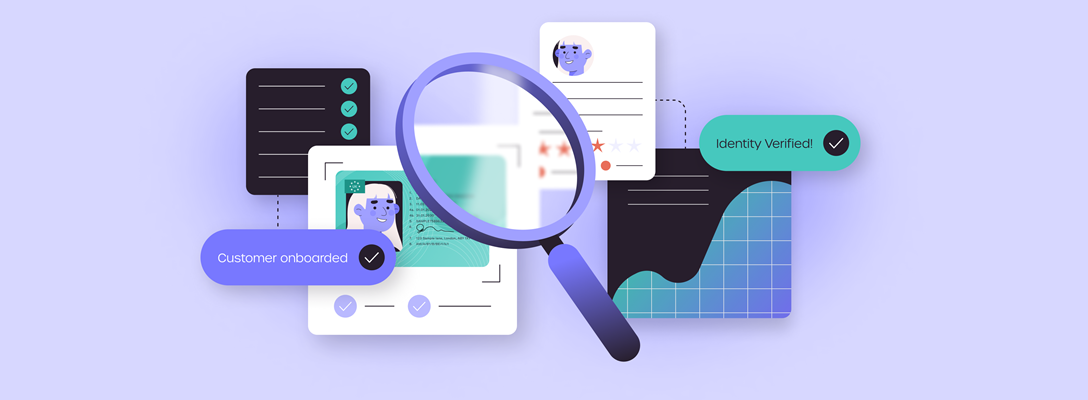
Effective use of identity verification solutions for regulated industries
With cyberattacks over the past few years leaving the personal data of millions of Australians exposed, the importance of reliable and robust identity verification solutions is growing.
Regulated industries are under increasing pressure to accurately verify the identity of their consumers to comply with legal requirements while meeting the demand for convenient and frictionless user experiences.
In this blog, we’ll explore how identity verification solutions are being utilised in regulated industries.
Why are identity verification solutions important in regulated industries?
Identity verification solutions provide effective security and fraud detection, reducing the risk of data breaches and the associated harm to your organisation. By implementing robust identity verification processes, businesses can stay compliant with AML and KYC regulations. Multi-factor authentication solutions, which require users to provide multiple verification forms offer enhanced security for regulated industries.
Which industries are identity verification solutions used in?
-
Financial Services
Identity verification is more relevant than ever in the financial services industry, particularly in Lending, Superannuation, and Buy Now Pay Later (BNPL). It effectively protects your organisation from financial crime and ensures compliance with KYC/AML regulations. Identity verification also removes friction from the loan application process by onboarding customers with biometric verification and form pre-fill using OCR. The use of identity verification solutions also delivers enhanced security and protects against identity theft while improving the user experience.
-
Education
The growth of identity fraud in remote learning has led to the increased importance of identity verification in the education industry. Identity verification is commonly used during the enrolment process to verify student identities and prevent fraudulent enrolments. Digital verification removes the hassle of manually verifying new students and lessens the administrative burden on staff.
-
Online Gaming
Due to the high risk of money laundering in the online gaming industry, identity verification is essential for verifying the identities of players before they start playing. Fraudsters use stolen identities or fake ID documents to create new accounts or gain access to existing ones where they attempt to syphon money from the victims’ bank accounts. Online gaming and wagering sites must comply with strict reporting and regulatory requirements including AML and CTF, while providing a seamless onboarding experience. Identity verification works to stop fraud attempts from the start, saving companies and customers alike from further troubles with banks and regulators down the line.
-
Cryptocurrency
The growth of scams and money laundering within the cryptocurrency industry has highlighted the importance of stricter regulations. Cryptocurrency platforms use identity verification solutions to speed up the customer onboarding process while staying compliant with regulations, protecting them against crypto crime and the associated financial, reputational, and legal harm.
Biometric verification ensures customers are real humans, utilising liveness detection to provide a seamless user experience. High-risk customers are easily identified, allowing cryptocurrency platforms to monitor them for any changes in their risk status.
-
Telecommunications
Within the telecom industry, when customers apply for prepaid or postpaid mobile phones, identity verification is used to collect and verify their identity information while reducing the manual input of data required. This reduces chances for errors and ultimately speeds up the onboarding of customers. While the process is seamless for genuine customers, advanced fraud detection means that bad actors are quickly identified.
-
Real Estate
Identity verification in the real estate industry enables seamless and more secure property settlements. It reduces fraud risk by verifying the identity of buyers and sellers and their authority to buy or sell a property before the process of buying and selling begins. Some states have recommendations for verifying a prospective buyer or seller. Although these recommendations aren’t AUSTRAC-required, they are strongly advised.
What happens when effective identity verification is lacking?
In 2022, cyberattacks against major Australian companies resulted in the exposure of millions of people’s personal data. The compromised names, email addresses, ID documents and phone numbers left people vulnerable to identity theft and fraud.
These breaches highlighted the companies’ gaps in security measures and reiterated the importance of robust identity verification. Regardless of the industry, effective identity verification solutions are key to ensuring protection against fraud and maintaining compliance with regulations.
To find out more about how greenID’s identity verification solution can be tailored to protect your business, contact us today.
Sign up for more expert insight
Hear from us when we launch new research, guides and reports.